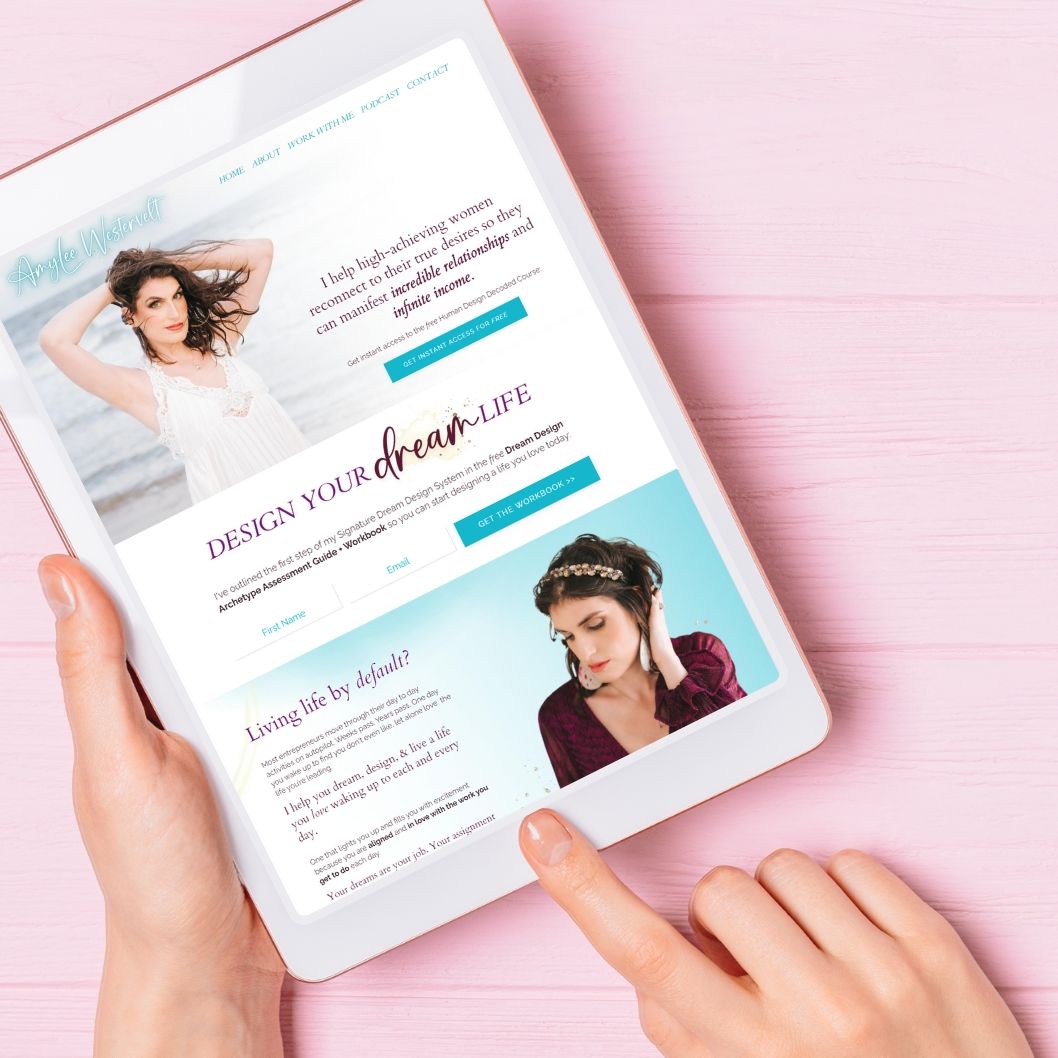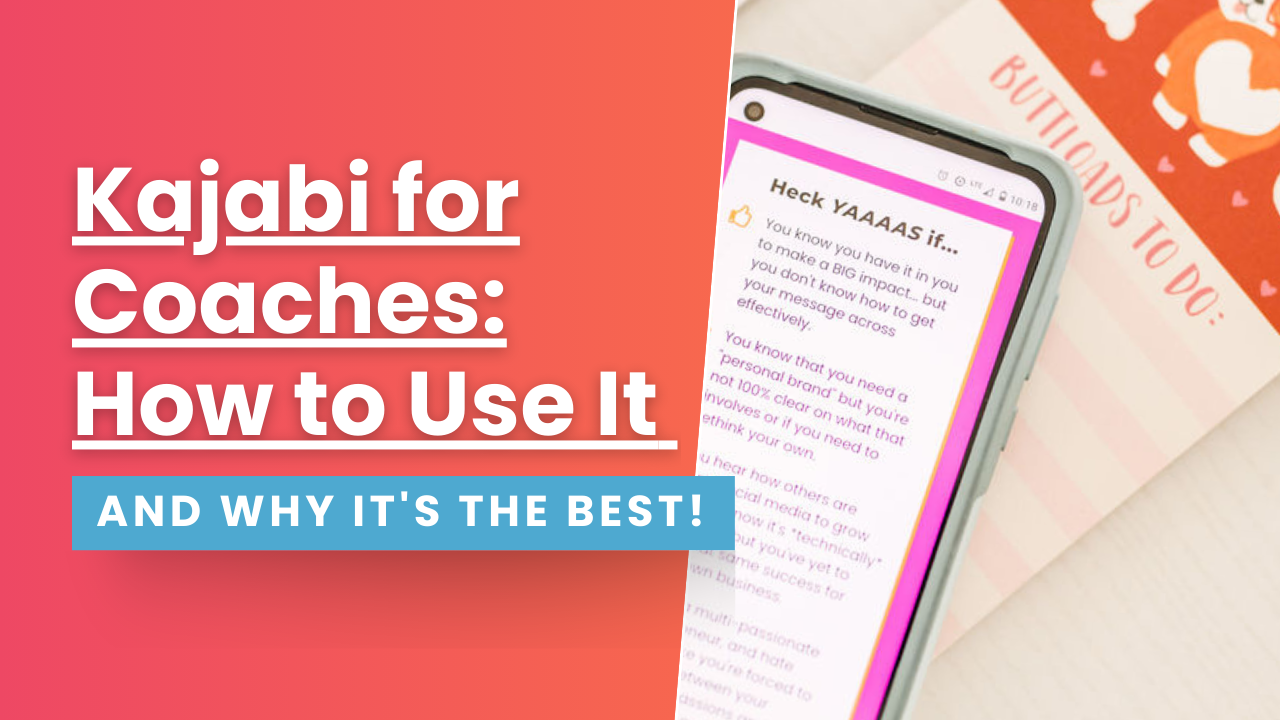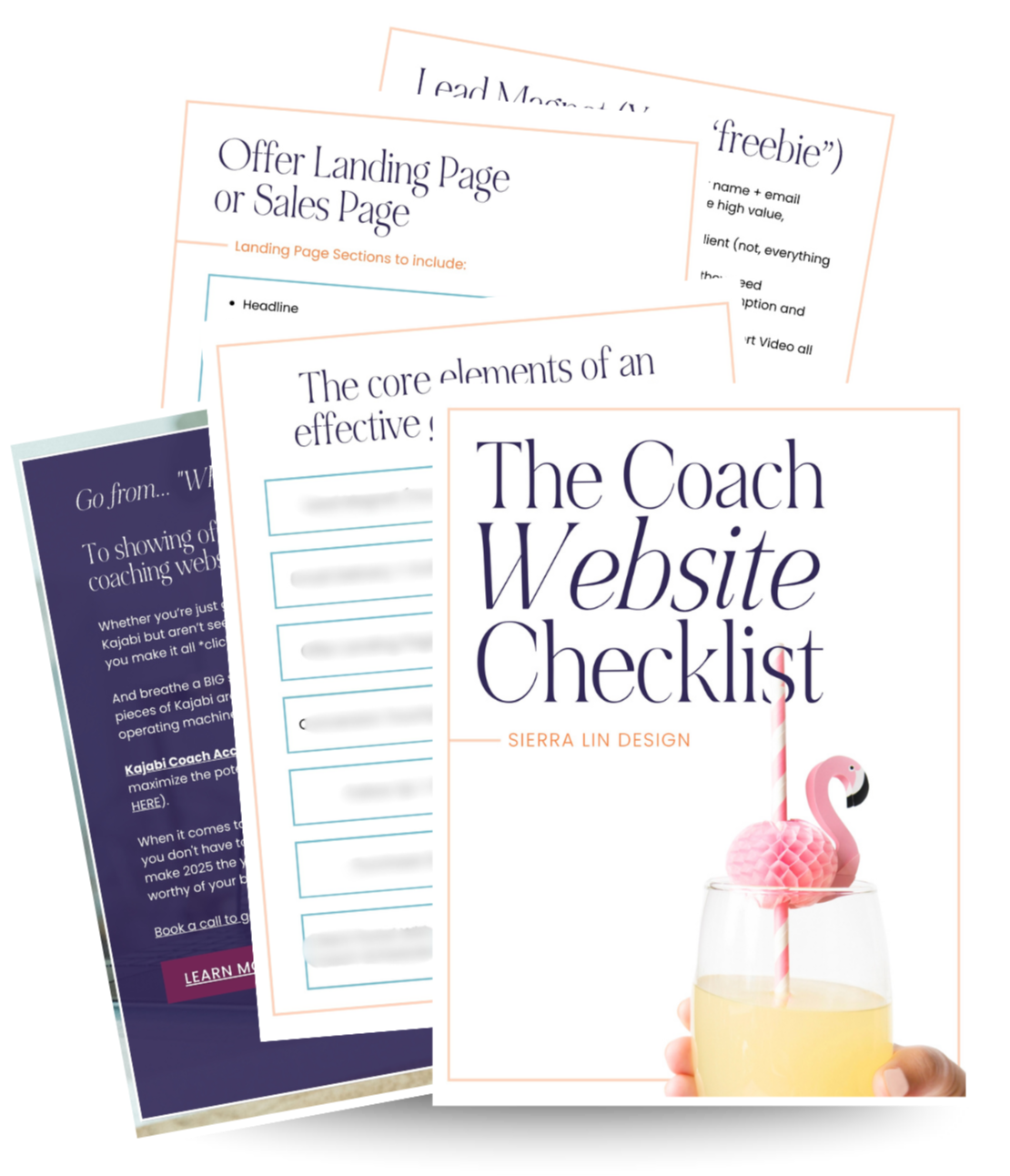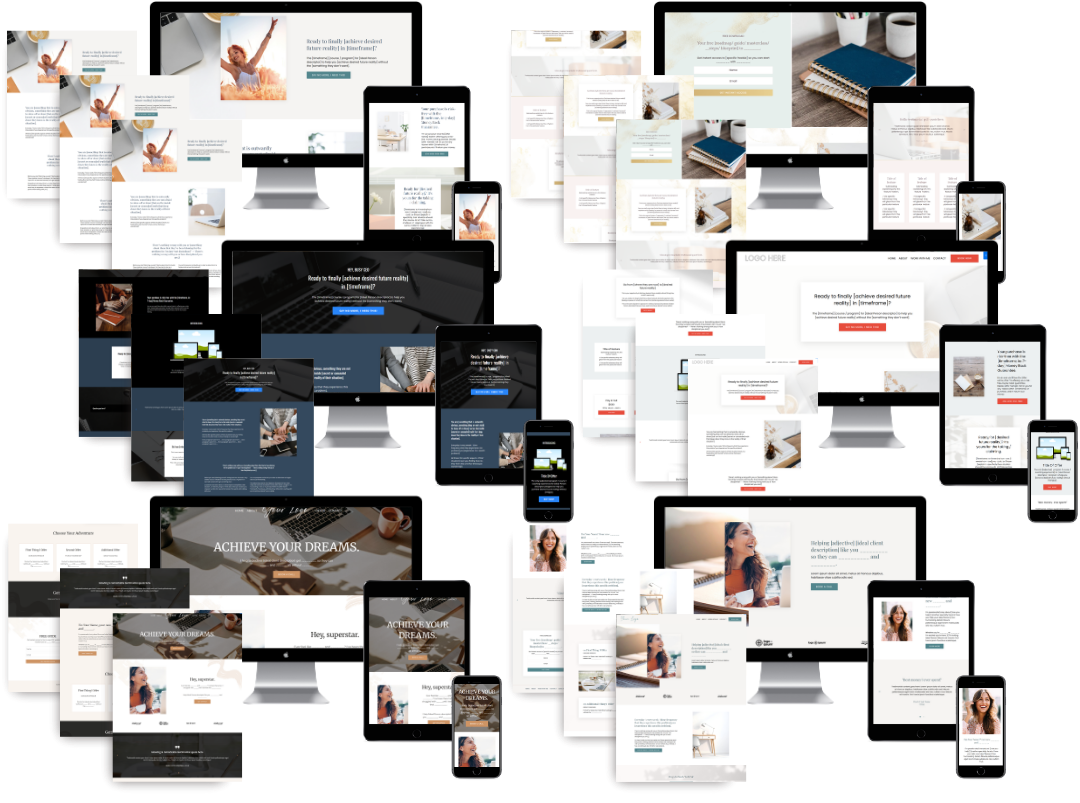Branding for Coaches: How To Build a Strong Personal Brand

Running a coaching business takes more than knowledge and passion.
To stand out in a crowded market, you need branding for coaches that builds trust, attracts the right people, and clearly communicates your value. A unique identity and brand are what transform your coaching practice from “just another option” into the obvious choice for ideal clients.
Are you a coach who’s been wondering if branding really makes that big of a difference in growing your business? (Spoiler alert: it absolutely does. 🎉)
Before we dig into the strategies, let’s take a quick step back. If the idea of building a personal brand feels overwhelming or unclear, no worries, you’ll find everything you need to get started right here.
Branding for Coaches: Why Coaches Need a Strong Personal Brand
Coaching is a fast-growing field, and standing out is no longer optional. A strong personal brand goes beyond looking polished. It shows people why they should choose you.
It helps you:
- Attract the right clients: When your brand reflects your coaching style and values, it naturally draws people who are a good fit.
- Build trust and credibility: A strong brand presence shows potential clients that you’re professional and reliable.
- Demonstrate thought leadership: When you share meaningful insights and craft compelling messages, you show up as a knowledgeable guide and an authority in your field.
- Stay visible: A consistent visual identity makes your coaching brand recognizable across platforms.
Even the most talented coach can struggle to grow if their brand identity is unclear and inconsistent.
Brand Story
Every coach has a story, and sharing yours helps clients understand why you do what you do. Your brand story weaves together your experiences, values, and vision into a narrative that builds trust. A well-crafted brand story creates an emotional connection that sets you apart in the coaching industry.
Brand Identity
Your brand identity is the unique combination of visuals, voice, and values that make your coaching business recognizable. It’s what potential clients remember after reading your blog, visiting your site, or seeing you on social media. When your brand identity is clear, it gives your audience confidence that you’re the right guide for their goals.
Brand identity also shapes how people talk about you when you’re not in the room. From the tone of your emails to the look of your marketing materials, every detail reinforces what you stand for.
Coaches with a clear, professional brand identity find it easier to attract referrals, partnerships, and media opportunities because people know exactly what they represent.
Personal Branding vs Business Branding
Many coaches wonder if they need both.
A business brand emphasizes your company name and services, while personal branding highlights your unique identity, values, and voice.
Since coaching is deeply personal, most successful coaches lean heavily on a personal brand story that reflects who they are. You can still maintain a business brand, but your personal brand is what will create connections with clients.
How To Build a Strong Personal Brand That Attracts Ideal Clients
Building a personal brand that truly connects begins with knowing exactly who you want to reach.
When you attempt to appeal to everyone, your message becomes diluted, so focus your marketing efforts on clients who share your values and respond to your coaching style. A target audience-based approach ensures your messaging speaks directly to the people most likely to benefit from your services.
It’s also important to keep an eye on what’s happening in the industry as a whole.
Google Trends paints a picture of what potential clients are searching for and provides insights to inform your content strategy. Research combined with intentional brand strategy helps you establish an authentic and relevant presence in a competitive market.
1. Define Your Coaching Style and Core Values
Before you can communicate your brand to others, you need to be clear about what you stand for. Consider the qualities that define your coaching style.
Are you structured or more flexible and intuitive?
What core values guide your work?
These answers lay the foundation for a brand that feels authentic and consistent everywhere you appear.
2. Identify Your Target Audience and Ideal Clients
Once your style and values are clear, turn your focus to the people you want to serve.
Instead of trying to appeal to everyone, get specific about who benefits most from your approach and what challenges you’re best equipped to help them solve. When you understand your audience, it’s easier to craft messages and offers that directly address their needs.
3. Craft Your Unique Value Proposition
Your unique value proposition (UVP) communicates why someone should choose you over other coaches.
Think about the transformation you provide. Your UVP should be highlighted in your brand message, on your website, and in your marketing materials to show exactly what makes your coaching brand stand out.
4. Develop a Strong Visual Identity
Visual brand identity is more than colors and fonts. It’s how you present yourself across all of your touchpoints. A consistent visual identity builds recognition and trust. Design your brand elements to align with your coaching style and resonate with your audience.
5. Create a Consistent Visual Identity
It’s not enough to design attractive brand elements once.
They need to show up the same way across your website, social media, and marketing materials. A consistent visual identity reinforces recognition, boosts credibility, and keeps your coaching personal branding professional, no matter where potential clients encounter you.
6. Build a Professional Coaching Website
Your coaching website is often the first impression of your brand. Your site should tell your story, highlight your offerings, and have a clear call to action.
This makes it easy for your broader audience to take the next step. Clear navigation and high-quality content also help position you as a credible source, while brand consistency and basic SEO tips help attract the right traffic.
7. Publish a Blog Post or Valuable Content
Content marketing is one of the best ways to establish authority.
Writing a blog post, sharing professional insights, or posting valuable content on your coaching site helps you appear in search engine ranking results and inspires fresh content ideas for your audience. Sharing insights builds trust and also positions you as a go-to resource.
8. Leverage Social Media Platforms
Social media has become one of the best ways for coaches to build professional networking opportunities. By showing up regularly, you can connect with people who might otherwise never discover your work and steadily grow your reach.
The key is being intentional: share tailored content that sparks engagement, repurpose blog posts into quick tips, and pay attention to the analytics to see what actually lands with your audience.
You don’t need to be on every platform, but you do need to show up consistently where your ideal clients already spend time.
9. Maintain Brand Consistency Everywhere
Your coaching brand should feel cohesive whether someone reads your blog, listens to your podcast or YouTube channel, or interacts with your social media.
Brand consistency strengthens trust. Ensure that your visual branding, brand elements, and core values are consistently represented in all marketing materials and content.
10. Build Relationships with Clients and Community
An effective personal brand is about more than looks; it’s about relationships.
Create content that speaks to your clients. Engage with other coaches in your niche, join conversations on industry trends, and build a community around your practice. A powerful personal brand inspires loyalty, referrals, and long-term business growth.
Common Branding Mistakes Coaches Should Avoid
When establishing your brand, you may make some mistakes along the way. Keep an eye out for these common ones, and your professional brand presence will remain strong.
- Copying other coaches: Your brand should highlight your unique identity, not mimic someone else’s.
- Inconsistent messaging: Without clear, consistent brand elements, clients may get confused.
- Ignoring SEO: Even a well-crafted personal brand won’t thrive if your site isn’t optimized with relevant keywords.
- Neglecting content marketing: If you’re not creating valuable content, you miss opportunities to attract targeted traffic.
FAQs
How Can I Measure if My Coaching Brand Strategy Is Actually Working?
Track progress by looking at social media analytics, website traffic, and the number of coaching clients you attract.
If your content marketing generates leads, your coaching services are converting, and your coaching brand is growing, that’s a sign your marketing strategy is working. Over time, you’ll see brand consistency translating into real results.
Is Personal Branding Important Even if I Only Coach Part-Time?
Yes. Even if coaching isn’t your full-time career, a strong personal brand story builds trust and credibility. It signals professionalism to potential clients, regardless of the number of hours you work. A well-crafted personal brand helps you create meaningful connections and positions you for future growth.
Do I Need Both a Personal Brand and a Business Brand for My Coaching Business?
You don’t always need both. In most cases, coaching personal branding is most effective because clients connect with you as a person. However, as your own business grows, you may want a business brand that supports a larger practice. Start with a strong personal brand and build from there.
Can I Use Social Media Platforms to Attract Ideal Clients without Paid Ads?
Definitely. Organic reach is powerful when you leverage social media with relevant content and practical tips.
Share valuable insights, highlight client stories, and maintain consistency in your posts. Social media offers a way to expand your audience, strengthen your brand identity, and attract clients without relying on paid campaigns.
What Are the Latest Industry Trends in Branding for Coaches?
Industry trends show that coaches are using a combination of high-quality content, like podcasts and YouTube channels, as well as targeted marketing campaigns to differentiate. Visual branding is also evolving. Bold, authentic brand elements have replaced generic templates.
Wellness coaching, career coaching, and business coaching niches are growing rapidly, so aligning your brand strategy with these shifts helps you stay relevant.
The Bottom Line
Personal branding for coaches is about more than design. Creating an effective personal brand that communicates your value and builds trust is a recipe for attracting clients.
When you’re clear about your coaching style, share your brand story openly, and keep your messaging consistent, you naturally set yourself apart. It’s the combination of clarity, authenticity, and consistency that makes your brand memorable and draws the right clients to you.
Ready to launch a coaching website that reflects your unique identity and attracts targeted traffic? Book your free call today to start building a presence that works as hard as you do.
Your coaching brand deserves to shine. Let’s make it happen. 🚀
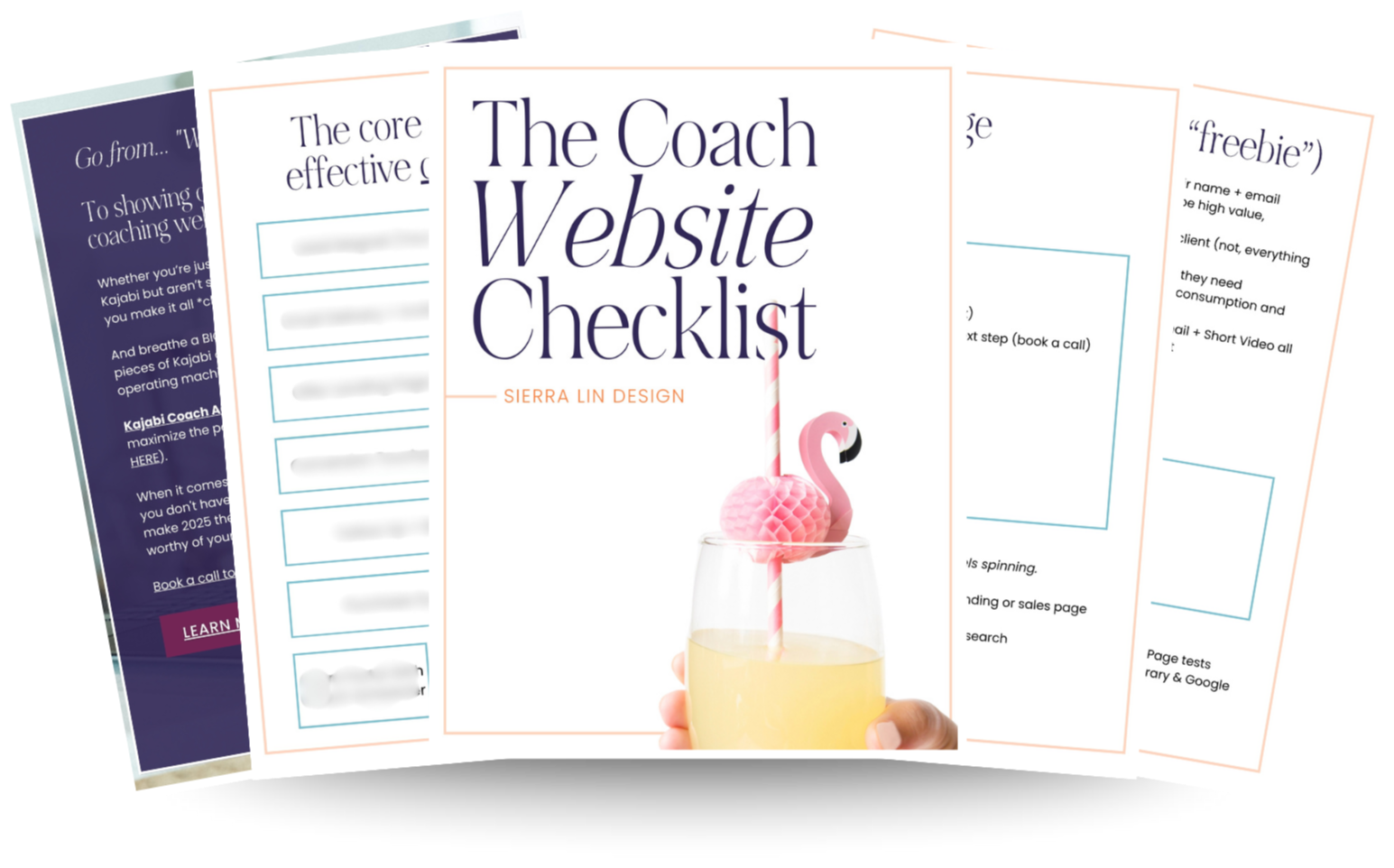
🚨Get the FREE Checklist
Skip the Kajabi tears—Swipe the free Coach Website Checklist & Funnel Map
Exactly what should go where on your Kajabi site to maximize coaching leads.


